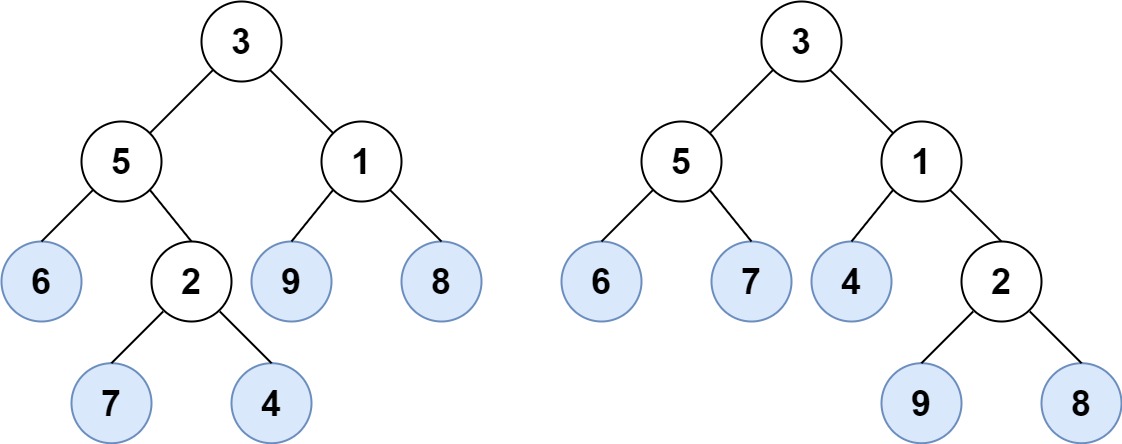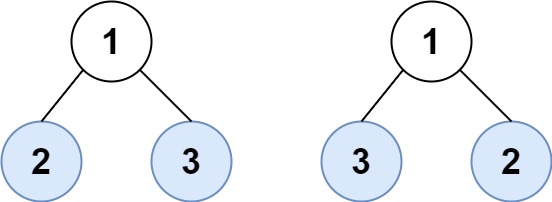Description
Consider all the leaves of a binary tree, from left to right order, the values of those leaves form a leaf value sequence*.*

For example, in the given tree above, the leaf value sequence is (6, 7, 4, 9, 8).
Two binary trees are considered leaf-similar if their leaf value sequence is the same.
Return true if and only if the two given trees with head nodes root1 and root2 are leaf-similar.
Example 1:

1
2
| Input: root1 = [3,5,1,6,2,9,8,null,null,7,4], root2 = [3,5,1,6,7,4,2,null,null,null,null,null,null,9,8]
Output: true
|
Example 2:

1
2
| Input: root1 = [1,2,3], root2 = [1,3,2]
Output: false
|
Constraints:
- The number of nodes in each tree will be in the range
[1, 200]. - Both of the given trees will have values in the range
[0, 200].
Solutions
You can use DFS (depth-first search) to determine whether the current node is a leaf node, and if so, save it. The two arrays are then compared.
1
2
3
4
5
6
7
8
9
10
11
12
13
14
15
16
17
18
19
20
21
22
23
24
25
26
27
28
29
30
31
32
33
34
35
| /**
* Definition for a binary tree node.
* struct TreeNode {
* int val;
* TreeNode *left;
* TreeNode *right;
* TreeNode() : val(0), left(nullptr), right(nullptr) {}
* TreeNode(int x) : val(x), left(nullptr), right(nullptr) {}
* TreeNode(int x, TreeNode *left, TreeNode *right) : val(x), left(left),
* right(right) {}
* };
*/
class Solution {
public:
bool leafSimilar(TreeNode* root1, TreeNode* root2) {
std::vector<int> vec1;
std::vector<int> vec2;
dfs(root1, vec1);
dfs(root2, vec2);
return vec1 == vec2;
}
private:
void dfs(TreeNode* root, std::vector<int>& vec) {
if (root == nullptr)
return;
if (root->left == nullptr && root->right == nullptr) {
vec.push_back(root->val);
} else {
dfs(root->left, vec);
dfs(root->right, vec);
}
}
};
|



